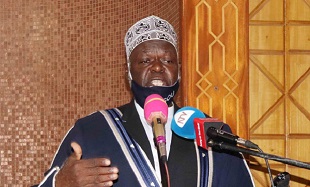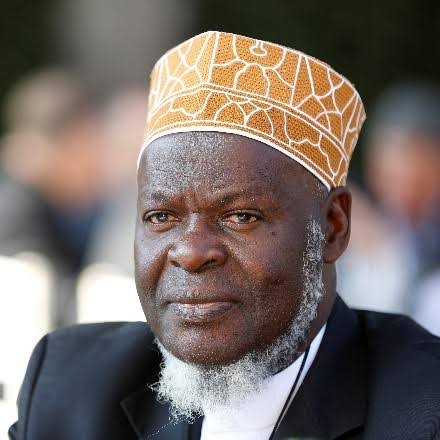What did Sheikh Shaban Ramadhan Mubajje say?
The recent call by the Mufti of Uganda, Sheikh Shaban Ramadhan Mubajje, to ban TikTok has sparked a nationwide debate on the role and regulation of social media in the country. Over the weekend, Sheikh Mubajje bitterly criticized individuals who use TikTok, labeling them as idle and engaging in meaningless discussions. He claimed that the app is useless and urged the government to ban it, arguing that it is more harmful than Facebook, which was restricted in Uganda about four years ago.

His remarks have sparked widespread reactions from the public, with many public figures highlighting the app’s importance and impact on the lives of many Ugandans. Some argue that TikTok is not merely a platform for idle chatter but a space for creativity, business, and information sharing.
What has UCC said?
In response to the Mufti’s call, the Uganda Communications Commission (UCC) weighed in on the matter. Ibrahim Bbossa, the UCC spokesperson, stressed that banning TikTok would be difficult as it is a foreign-based platform. However, he noted that the only viable way to regulate it is through enforcing the Computer Misuse Act. Under this law, individuals who use the platform to insult or defame others can be taken to court, ensuring accountability without imposing a total ban.
Other religious leaders and public figures have also contributed to the discussion. Sheikh Bruhan Kiti, another prominent cleric, believes that instead of banning the app, efforts should focus on regulation. He acknowledged the app’s ability to spread positive information to masses within a short period and emphasized responsible usage over prohibition.
The debate over TikTok’s impact comes at a time when social media usage in Uganda is at an all-time high. Reports indicate that TikTok accounts for a significant share of internet data consumption in the country, with millions of Ugandans actively using the platform for entertainment, business, and information-sharing. Many young entrepreneurs and content creators have built careers and livelihoods through the app, making a potential ban a matter of economic concern as well.
History of Ugandan laws against social media
The Ugandan government has a history of stringent social media regulations, as seen in the past restriction of Facebook. This precedent has raised concerns among digital rights advocates, who warn that restricting TikTok could set another negative example of limiting online freedoms. Instead of an outright ban, experts suggest strengthening digital literacy programs and enforcing existing cyber laws to curb the misuse of social media platforms while preserving freedom of expression.
Public reactions to Sheikh Mubajje’s call have been varied. While some agree with his concerns about the platform’s potential for misuse, others argue that banning TikTok would be an extreme measure that disregards its benefits. Many Ugandans have pointed out that the app has become a vital tool for entertainment, education, and even political activism, making it difficult to justify a total shutdown.
The conversation around TikTok’s role in Uganda remains complex, balancing moral concerns, digital freedoms, and economic realities. As discussions continue, policymakers face the challenge of finding a regulatory approach that addresses the concerns of both religious leaders and the millions of users who rely on the platform. Whether through stricter enforcement of existing laws or new regulations tailored for digital platforms, the outcome of this debate will significantly impact Uganda’s evolving digital landscape.




